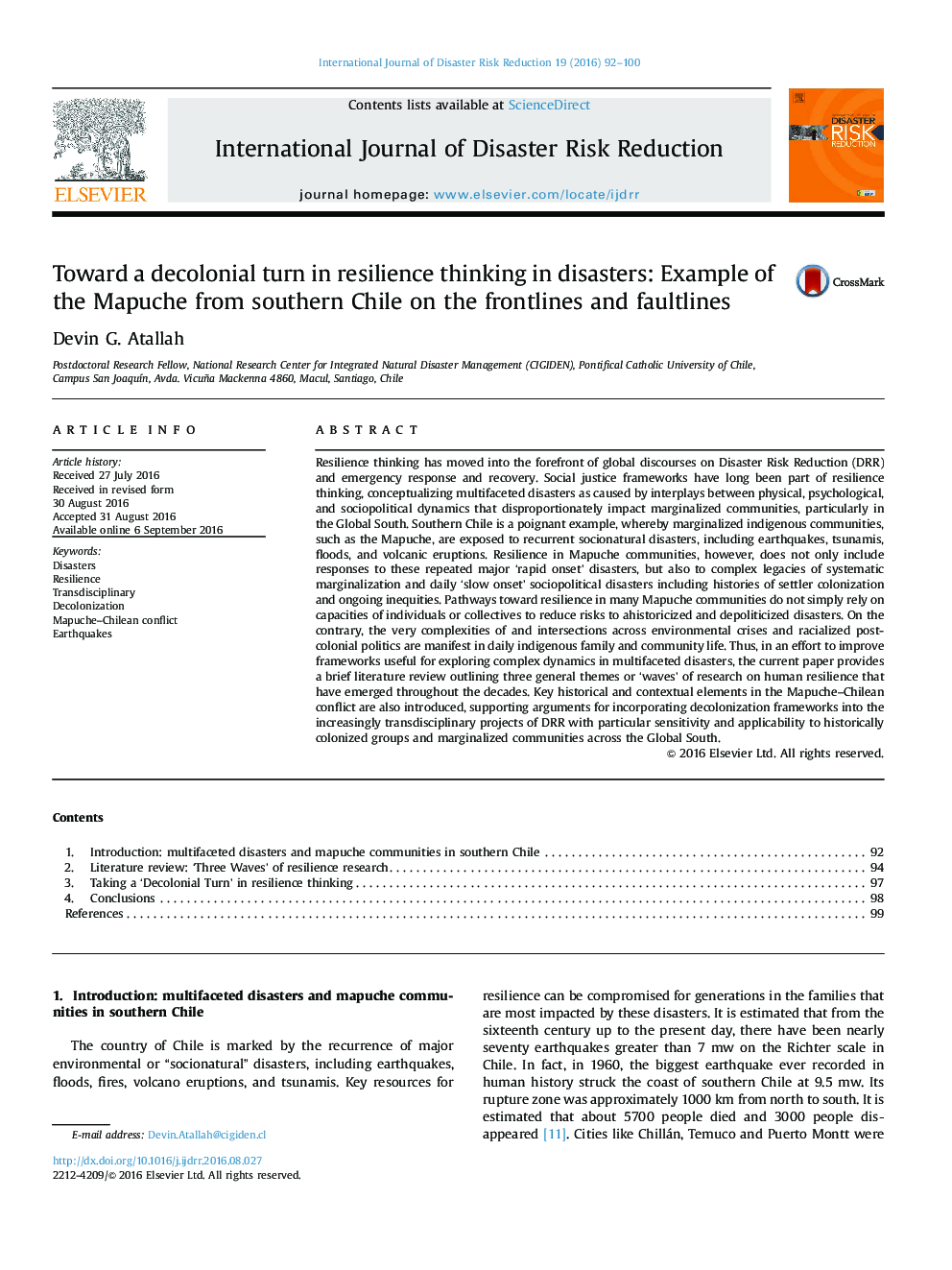| کد مقاله | کد نشریه | سال انتشار | مقاله انگلیسی | نسخه تمام متن |
|---|---|---|---|---|
| 7472338 | 1485151 | 2016 | 9 صفحه PDF | دانلود رایگان |
عنوان انگلیسی مقاله ISI
Toward a decolonial turn in resilience thinking in disasters: Example of the Mapuche from southern Chile on the frontlines and faultlines
دانلود مقاله + سفارش ترجمه
دانلود مقاله ISI انگلیسی
رایگان برای ایرانیان
کلمات کلیدی
موضوعات مرتبط
مهندسی و علوم پایه
علوم زمین و سیارات
فیزیک زمین (ژئو فیزیک)
پیش نمایش صفحه اول مقاله

چکیده انگلیسی
Resilience thinking has moved into the forefront of global discourses on Disaster Risk Reduction (DRR) and emergency response and recovery. Social justice frameworks have long been part of resilience thinking, conceptualizing multifaceted disasters as caused by interplays between physical, psychological, and sociopolitical dynamics that disproportionately impact marginalized communities, particularly in the Global South. Southern Chile is a poignant example, whereby marginalized indigenous communities, such as the Mapuche, are exposed to recurrent socionatural disasters, including earthquakes, tsunamis, floods, and volcanic eruptions. Resilience in Mapuche communities, however, does not only include responses to these repeated major 'rapid onset' disasters, but also to complex legacies of systematic marginalization and daily 'slow onset' sociopolitical disasters including histories of settler colonization and ongoing inequities. Pathways toward resilience in many Mapuche communities do not simply rely on capacities of individuals or collectives to reduce risks to ahistoricized and depoliticized disasters. On the contrary, the very complexities of and intersections across environmental crises and racialized postcolonial politics are manifest in daily indigenous family and community life. Thus, in an effort to improve frameworks useful for exploring complex dynamics in multifaceted disasters, the current paper provides a brief literature review outlining three general themes or 'waves' of research on human resilience that have emerged throughout the decades. Key historical and contextual elements in the Mapuche-Chilean conflict are also introduced, supporting arguments for incorporating decolonization frameworks into the increasingly transdisciplinary projects of DRR with particular sensitivity and applicability to historically colonized groups and marginalized communities across the Global South.
ناشر
Database: Elsevier - ScienceDirect (ساینس دایرکت)
Journal: International Journal of Disaster Risk Reduction - Volume 19, October 2016, Pages 92-100
Journal: International Journal of Disaster Risk Reduction - Volume 19, October 2016, Pages 92-100
نویسندگان
Devin G. Atallah,